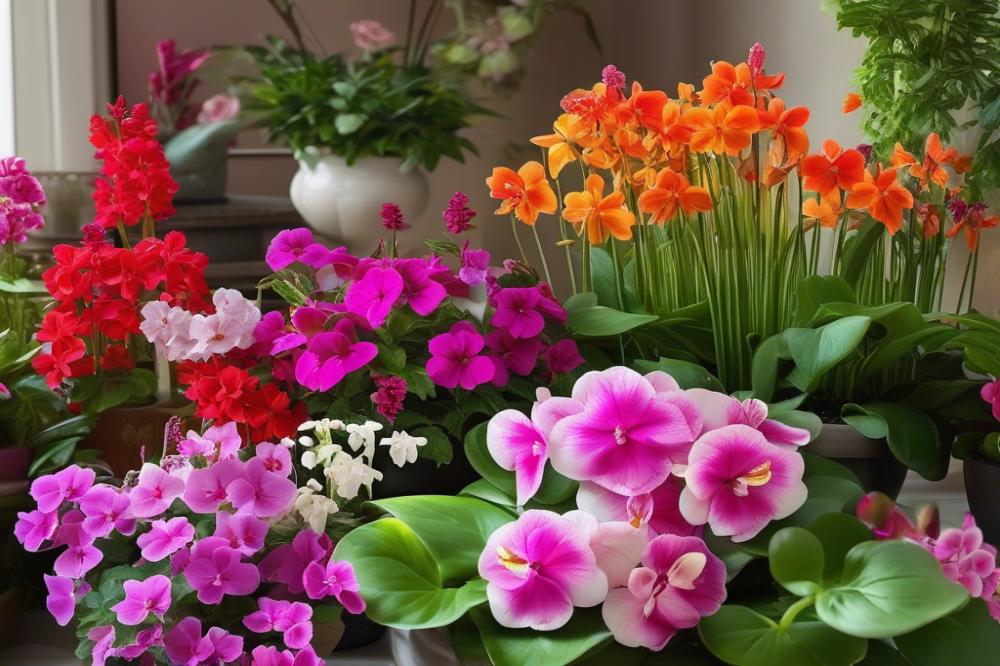Introduction
Growing healthy roses requires commitment, patience, and knowledge. These beautiful plants bring joy to many gardeners, but they can be susceptible to pests. Among them, aphids stand out as a common threat.
Aphids are small, soft-bodied insects that feed on the sap of plants. They often cluster on tender stems, leaves, and flower buds, sucking vital nutrients from your prized roses. This feeding can weaken the plants, stunt their growth, and even lead to their death if not addressed promptly. Not only do they damage the roses, but they can also attract ants and facilitate the spread of diseases.
The purpose of this article is to share effective methods for protecting your roses from these pesky invaders. By exploring various pest control strategies, both synthetic and organic solutions, you can maintain robust rose health. natural remedies like neem oil and insecticidal soap will be discussed, along with practices like companion planting and encouraging beneficial insects such as ladybugs. Understanding the importance of healthy soil and aphid resistance will help you create a flourishing garden environment. This approach to roses care ensures that you can enjoy your blooms without the worry of aphids disrupting your garden.
Understanding Aphids

Aphids are tiny, soft-bodied insects that belong to the family Aphididae. These pests often appear in clusters on the leaves and stems of roses. They feed by piercing the plant’s tissue and sucking out the sap. Vegetation can take a real hit when aphids invade. Their habits typically include reproducing quickly and spreading to nearby plants. You might wonder how quickly they multiply; in ideal conditions, some aphids can give birth to hundreds in just a few weeks.
Several types of aphids commonly affect roses. The green peach aphid and the black bean aphid are frequent culprits. The rose aphid itself is unique in its tendency to target roses specifically. Knowing which species is impacting your plants can guide your pest control efforts. Each type has its own preferred climate. While some thrive in warm weather, others might prosper in cooler temperatures.
Symptoms of an infestation can be alarming. Leaves may curl, yellow, or appear stunted when aphids are present in large numbers. You might also notice a sticky residue, known as honeydew, on the surfaces of leaves and nearby surfaces. This residue can attract other pests like ants, complicating matters even further. Checking for these signs regularly can save your roses from serious damage. A close inspection reveals their presence quickly, making it easier to act before they spread.
Healthy soil plays a vital role in rose gardening. Nutrient-rich soil helps plants withstand infections and resist pests. Making use of natural remedies can also aid your gardening efforts. For example, insecticidal soap is an effective way to manage aphid populations. Another option is neem oil, which disrupts the life cycle of these pests. Companion planting is smart, too. Plants like marigolds or chives can keep aphids at bay. Additionally, attracting ladybugs can provide a natural solution to the problem. These friendly beetles are known for consuming large quantities of aphids, acting as your garden’s little helpers.
By understanding aphids and their habits, you can better protect your roses. Fostering a healthy, balanced ecosystem is key to achieving aphid resistance in your garden. Using organic solutions ensures that your roses thrive while maintaining environmental integrity. Keep an eye out for symptoms, and take action as soon as you notice them. This proactive approach leads to healthier plants and a more beautiful garden overall.
Preventing Aphids Through Healthy Soil

Healthy soil plays a crucial role in developing strong roses that can resist aphids. When the soil is rich in nutrients, rose plants are generally more robust. This robustness makes them less appealing to pests. Plants housed in nutrient-rich environments naturally produce better defenses against invaders like aphids.
Organic solutions are vital to maintaining this soil health. Chemical fertilizers may provide quick results, but they fail to enhance long-term soil vitality. Instead, using organic materials enriches the ground and encourages beneficial microbes. These organisms help plants absorb essential nutrients more effectively. In turn, this leads to better growth and increased aphid resistance.
There are many techniques to enrich the soil in your rose garden. Adding compost is one of the simplest ways to boost soil fertility. Compost improves the structure of the soil, retains moisture, and feeds your plants slowly. Organic fertilizers also serve a similar purpose by releasing nutrients gradually and maintaining soil balance.
Consider incorporating companion planting to maximize benefits in your garden. Some plants naturally deter aphids, providing extra protection for your roses. Marigolds and garlic are excellent examples of companions that can keep unwanted pests at bay. Furthermore, attracting ladybugs is another effective strategy. These beneficial insects actively consume aphids, maintaining a healthy ecosystem in your garden.
Remember to explore natural remedies as well. Products like neem oil and insecticidal soap can be gentle yet effective deterrents. They target aphids without harming beneficial insects or the environment. Regularly monitoring your plants will also help catch any aphid presence early, allowing for immediate action.
In essence, investing time in creating healthy soil is essential for your roses. With solid foundations, they will thrive and resist common pests. Employing organic solutions, enriching soil, and utilizing companion plants will all contribute to a vibrant and lush rose garden.
Natural Remedies for Aphid Prevention

Roses are beautiful but can sometimes attract pesky aphids. Natural pest control methods offer solutions to keep these insects away without harming the environment. Many gardeners prefer using organic solutions that are safer for plants and wildlife. A few effective approaches exist that can help maintain a healthy garden without resorting to harsh chemicals.
Beneficial Insects like Ladybugs
One of the best strategies involves introducing beneficial insects, particularly ladybugs. These little creatures eat aphids, significantly reducing their population. Ladybugs can consume hundreds of these pests in a single day. Encouraging their presence in your garden can lead to natural aphid resistance. Creating a welcoming environment for ladybugs will also support biodiversity in your rose garden.
Attracting Beneficial Insects
Companion planting is another effective method to draw beneficial insects. Pairing roses with fragrant herbs or flowers can attract ladybugs and other helpful bugs. For instance, plants like dill, yarrow, or marigold can create a habitat that draws in these insects. Additionally, maintaining healthy soil is crucial. Healthy plants are less prone to pest infestations, including aphids.
Another natural remedy includes using insecticidal soap. This product can effectively suffocate aphids without impacting beneficial insects when applied carefully. Neem oil is another option that can deter aphids while being gentle on other wildlife. Both remedies act directly on the insects, preventing them from feeding on your precious roses.
When employing these strategies, patience is key. Building a balanced ecosystem in your garden takes time but pays off with thriving roses free from aphid damage. Incorporating techniques that promote natural predators is an investment in the long-term health of your plants. By fostering a welcoming atmosphere for beneficial insects, you will be on your way to enjoying vibrant flowers while minimizing the risks that come with unwanted pests.
Using Insecticidal Soap and Neem Oil

Insecticidal soap is an effective option for tackling aphids. This pest control method works by suffocating the insects on contact. The fatty acids in the soap disrupt the cell membranes of these pests, ultimately leading to their demise. Using insecticidal soap is simple and often safe for the environment, making it a popular choice among gardeners.
Another popular organic solution is neem oil. Derived from the seeds of the neem tree, this oil has properties that repel and disrupt the life cycle of aphids. Benefits of using neem oil include its ability to prevent future infestations due to its long-lasting residual effect. Additionally, it is non-toxic to beneficial insects like ladybugs, which are natural predators of aphids. Neem oil also promotes healthy soil by encouraging plant health, boosting their natural defenses against pests.
Application Methods
When using insecticidal soap, it’s important to coat the affected areas thoroughly. The soap should be sprayed on the roses, focusing on undersides of the leaves where aphids often hide. Be sure to apply it during cooler parts of the day to avoid harming the plant. Reapplication may be necessary every few days until the aphids are gone.
For neem oil, mix it with water according to the package instructions. Apply this mixture as a foliar spray, targeting all foliage. Much like insecticidal soap, spraying should take place either early in the morning or later in the day. Regularly check your roses after treatment. Both methods are great when combined with companion planting and cultivating rose varieties that exhibit aphid resistance.
Companion Planting as a Strategy
Companion planting refers to the practice of growing certain plants together for mutual benefit. This technique can enhance plant growth and reduce the chances of pest problems, such as aphids. It’s a simple yet effective strategy that many rose gardeners have used for years. By selecting the right companions, you can create a more balanced ecosystem in your garden.
Best Companion Plants to Deter Aphids
Some plants are particularly good at keeping aphids at bay. Marigolds are among the most popular choices. Their strong scent acts as a natural repellent for many pests, including aphids. Additionally, garlic and chives can help protect roses, as these herbs are known for their pest-repelling properties. Another great option is nasturtiums. They attract aphids away from your roses, acting as trap plants. Planting these companions not only deters unwanted guests but also adds beauty to your garden.
How Companion Planting Enhances Overall Garden Health
Using companion planting contributes to a healthier garden environment. These beneficial plants can improve soil conditions, which is vital for rose gardening. Healthy soil leads to stronger plants that are more resilient against pests and diseases. With a diverse plant population, beneficial insects such as ladybugs can thrive as well. These helpful creatures are natural predators of aphids, further bolstering your pest control efforts. Moreover, incorporating various plants promotes a balanced ecosystem, where each organism plays its part. This diversity not only makes gardening more enjoyable but also supports organic solutions.
Incorporating companion planting into your rose gardening routine provides a host of advantages. You can enjoy a more vibrant garden while also reducing your reliance on chemicals. Many gardeners prefer natural remedies over insecticidal soap or neem oil. By making these strategic choices, you’re investing in both the health of your roses and the environment.
Promoting Aphid Resistance in Roses
Choosing the Right Varieties
Selecting aphid-resistant rose varieties is a smart strategy. Certain types are less appealing to these pests. Look for options like Knock Out roses or those labeled as disease-resistant. These varieties can thrive better against infestations. A little research can go a long way in protecting your garden.
Importance of Care and Maintenance
Plant health starts with proper maintenance and care. Watering, pruning, and fertilizing should be done carefully. Healthy soil promotes strong roots, which, in turn, supports overall plant health. Remember, vigorous plants are less likely to suffer from pests. Regular inspections can help catch problems early.
Good Gardening Practices Matter
Implementing effective gardening practices leads to resilient plants. Techniques like companion planting can create natural barriers against aphids. Consider planting flowers that attract ladybugs. These beneficial insects help control aphid populations naturally.
Utilizing organic solutions, such as neem oil or insecticidal soap, can keep infestations at bay. Always follow instructions carefully when using any pest control method. Focusing on healthy soil will support your roses throughout different seasons. With combined efforts in rose gardening and research, you’ll find that proactive measures can significantly increase aphid resistance.
Final Thoughts on Rose Gardening
Recapping the essential strategies to keep aphids at bay reveals the importance of diligence. Regular monitoring of your plants is crucial. Introducing beneficial insects like ladybugs can improve pest control naturally. Using barriers such as row covers also serves as an effective tactic. Spraying a mix of water and soap can act as a quick, homemade shield against these pests. Each of these methods plays a role in creating a healthy garden.
Adopting a holistic approach to rose gardening enriches your experience. Healthy soil, proper watering, and balanced fertilization create a thriving environment for your roses. Consider planting companion plants that can repel aphids or attract helpful insects. This strategy enhances the ecosystem around your roses and promotes their overall well-being.
Cultivating healthy, beautiful roses brings immense joy. Watching them bloom, with vibrant colors and enchanting fragrances, makes every effort worthwhile. Engaging in your garden offers a unique sense of accomplishment. By using a mix of natural remedies and proactive measures, you can enjoy the rewards of your hard work. Embrace the journey of nurturing your roses, and celebrate the beauty that they bring to your home.



